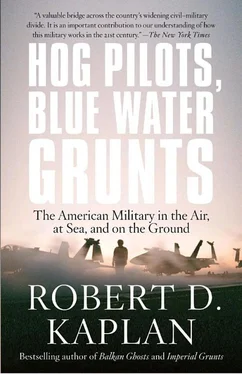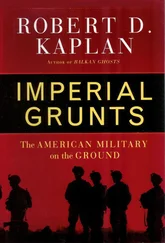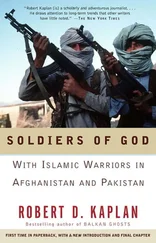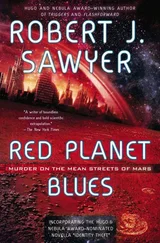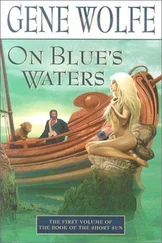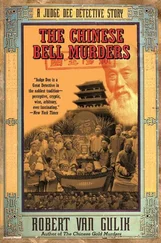The November 1943 Marine assault on Betio Island in the Tarawa Atoll, the most important of the Gilbert Islands in the central Pacific, claimed close to three thousand Marine casualties—including close to a thousand killed—and five thousand Japanese dead in little more than three days of fighting. [3] Initial estimates of Marine casualties were 1,026 killed and 2,600 wounded, later revised to 685 killed, 169 missing, and 2,100 wounded.
The Time-Life correspondent writes of a “husky boy… killed ten feet in front of the seawall pillbox which was his objective. He is still hunched forward, his rifle in his right hand. That is the picture of the Marine Corps I shall always carry: charging forward.” [4] Robert Sherrod, Tarawa: The Story of a Battle (New York: Duell, Sloan and Pearce, 1944), p. 126. For another book with a stirring description of the fighting on Tarawa, see Leon Uris, Battle Cry (New York: Putnam, 1953).
Sherrod, like other correspondents of the era, keeps using the words “we” and “our” when referring to the American side, for although a journalist, he was a fellow American living among the troops. 11Back in Honolulu a week after the battle, he found the naïveté of the home front toward Tarawa “amazing.” The public saw the killing of so many troops in so few days as scandalous. There were rumblings in Congress about an intelligence failure, and vows that such a thing must not happen again. But as Sherrod argues, there was no easy way to win many wars (in fact, eight months later, the first day of fighting on Guam would claim nearly seven hundred marines dead, wounded, or missing). Thus, “to deprecate the Tarawa victory was almost to defame the memory of the gallant men who lost their lives achieving it.” He concludes that on Tarawa, in 1943, “there was a more realistic approach to war than there was in the United States.” 12
———
At night, away from the range, Sgts. Rivera, Long, and Singley played poker under the stars amid the lizards, the plague of frogs, and the whining mosquitoes. It was too hot to sleep. Mefloquine, an anti-malaria drug that many of the marines were taking, gave some of them insomnia or bad dreams, or both. Those not playing poker read old hunting, weapons, and NASCAR magazines, or watched DVDs. Occasionally there were parties in Niamey where you could drink with the Peace Corps girls, whose jobs kept them relatively close to the capital. The educated Nigerien women, dressed to the nines at the one or two fancy nightclubs in town, wouldn’t so much as look at the marines, unlike in Chad, where such women had been all over them. It was another indication of how Chad, despite the development statistics, was a more desperate place than Niger.
Some nights a storm would erupt in the wee hours, and those of us sleeping outside would pull our fold-out cots and mosquito nets back into the concrete rooms in the pitch-darkness. The nearby river itself, simply by its beauty, offered relief from the heat and rain. Behind the hootch was a hill that offered a ten-mile-long panorama of a turn in the Niger. At sunset, when a clean wind absent of greasy dust would kick up in your face, the wide pan of water would go from a shimmering aluminum to a deep volcanic red depending upon the sun’s angle.
Every evening was story time. Stories would be told sitting on the hill overlooking the river, or over a local Flag beer behind the hootch, or riding back from Niamey late at night in the rear of a pickup. For instance, there was Sgt. Nicholas Cervantes, an ethnic Mexican Filipino from Dallas, a stocky kid in his early twenties with a handsome, square-shaped face and calm, sleepy manner. He told me about how his grandfather had escaped from the Japanese at Bataan during the time of the World War II death march, only to die in a convenience store holdup years later back in America; and how his uncle, a Vietnam veteran, refused to tell him his war stories until after Cervantes had proved himself by fighting in Iraq.
“I know where heaven is and it’s Lithuania,” went a story by another marine who had gone there on holiday. “The women are beautiful, pagan, with a practical view toward sex. Who says communism was bad? You’re working three levels of advantages: you’re a foreign male, you’re a rich, exotic American, and their own men are a bunch of drunken, criminal slobs. Ukraine’s just as good. But it’s not gonna last because of the expansion of the European Union.”
First Lt. Michael Aldrich of Lufkin, Texas, also had good stories. Mike Aldrich was a short, sinewy, Popeye sort of guy who walked with his shoulders rolled back, confidently swinging an arm as though it had a billy club attached to it. At thirty-seven he was very old for a lieutenant. Two days after finishing high school he was in Marine boot camp, but left active duty to work as a forklift operator and machinist making parts for oil pumping rigs. Called up as a reservist in 1990, he fought in the Gulf War as a scout sniper. Then he got a job in the Texas state prison system. After the Mexican mafia put a contract out on him for “clocking” one of the inmates (breaking his jaw) in self-defense, he was transferred to another penitentiary for his own safety. Instead, Aldrich joined the Lufkin police department, from which he would eventually be fired. “I was just too aggressive. I didn’t want to mark time, I wanted to bust people. But they told me that as long as cars transporting drugs north out of Mexico were not stopping in Lufkin, I should just let ’em pass through. It was so political.”
So he went back to the prison system, where he worked on death row. “The death row inmates were easy to deal with—they didn’t want to mess up their appeals by attacking a guard. I looked at their case files, though. I’ll tell you something: they deserved to die. Texas doesn’t bullshit, it executes.”
Meanwhile, Aldrich missed the Marine Corps—“the only place in my life where I have been judged completely on my own merits and mistakes.” At thirty-four, he reenlisted as a corporal. After years of bad luck, a series of breaks led to the offer of a meritorious commission just before he reached the age limit. Going to school at night to earn a degree from Campbell University in Buies Creek, North Carolina, he was commissioned as a second lieutenant. He became a liaison officer at Bethesda Naval Hospital during the Iraq war, where his job was to assure that wounded marines from Camp Lejeune were getting their convalescent benefits. “It was the most important job of my life. I met the President and the chairman of the Joint Chiefs. I felt that I restarted my life as a Marine officer. You don’t know how depressed I was after getting fired from the Lufkin police department. But my wife has stood by me since high school. We can’t know our destiny, it’s God’s plan. I’m headed for Iraq in the spring, finally.”
———
The best storyteller was one of the Navy docs, “Smitty”—his nickname was tattooed in big letters across the top of his back. Hospital Corpsman 2nd Class Brian Smith of St. Louis, with kinky dirty blond hair, was Long’s and Rivera’s poker buddy. Smitty was crude and nasty. He loved to smoke and drink. He had seen it all. “In a trauma situation, I’d trust Smitty more than any Navy chief or surgeon,” Steve Long told me. Smitty had no rhythm, but I often saw him dancing by himself, snapping his fingers as he walked along. He had a distinct southern accent, not unusual given that in some respects St. Louis constituted the northern tip of Dixie.
Smitty joined the Navy out of high school. Seven of his thirteen years in the Navy had been on “the green side”—with the Marines. “Hearing a marine call you ‘Doc’—something they’ve been doing since the dawn of time—well, it’s pretty cool. It does something to you,” he told me. “Marines won’t fight, train, go to the range, or do anything without a corpsman. Technically, the corpsman is a noncombatant, armed with only a nine-mil[limeter Beretta pistol] in self-defense. Bullshit. The life expectancy of corpsmen in the field in Vietnam was among the lowest of Marine units. As long as a corpsman doesn’t puss out, marines treat him like their own. That’s why I stay on the green side. The blue side [the Navy] just ain’t the same.”
Читать дальше
